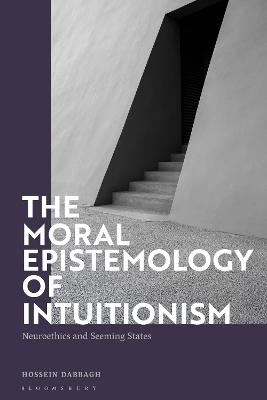
The Moral Epistemology of Intuitionism
Bloomsbury Academic (Verlag)
978-1-350-29761-6 (ISBN)
His line of analysis resists the empirical challenges derived from empirical moral psychology and reveals the seeming-based account of moral intuitionism as the most tenable one. The Moral Epistemology of Intuitionism combines epistemological intuitionism with work in neuroethics to develop an account of the role that moral intuition and emotion play in moral judgment. The book culminates in a convincing argument about the value of understanding moral intuitionism in terms of intellectual seeming and perceptual experience.
Hossein Dabbagh is Assistant Professor in Applied Ethics at New College of the Humanities, Northeastern University London, UK, and Philosophy Tutor at the University of Oxford’s Department for Continuing Education, UK.
Acknowledgements
Introduction
Part I: Mind
1. Philosophical Intuition’s Mental Ontology
2. Moral Intuition’s Mental Ontology: Shifting from Philosophical to Moral Intuition
3. The Use of Intuition as Evidence
Part II: Epistemology
4. Shaping Classic Moral Intuitionism: An Examination of H. A. Prichard’s and W. D. Ross’s Ideas
5. Towards the New Moderate Intuitionism: Recent Revivals of Contemporary Moral Intuitionism
Part III: Neuroethics
6. Scepticism about Moral Intuition: How My Favoured Account of Intuition Rebuts the Neuroethicists’ Position
7. Scepticism about Moral Intuitionism: How My Favoured Account of Epistemological Intuitionism Rebuts Sinnott-Armstrong’s Position
Afterword
Notes
Bibliography
Index
| Erscheinungsdatum | 02.12.2022 |
|---|---|
| Verlagsort | London |
| Sprache | englisch |
| Maße | 156 x 234 mm |
| Themenwelt | Geisteswissenschaften ► Philosophie ► Erkenntnistheorie / Wissenschaftstheorie |
| Geisteswissenschaften ► Philosophie ► Ethik | |
| ISBN-10 | 1-350-29761-5 / 1350297615 |
| ISBN-13 | 978-1-350-29761-6 / 9781350297616 |
| Zustand | Neuware |
| Haben Sie eine Frage zum Produkt? |
aus dem Bereich


![Was heißt Denken?. Vorlesung Wintersemester 1951/52. [Was bedeutet das alles?] - Martin Heidegger](/media/113619842)